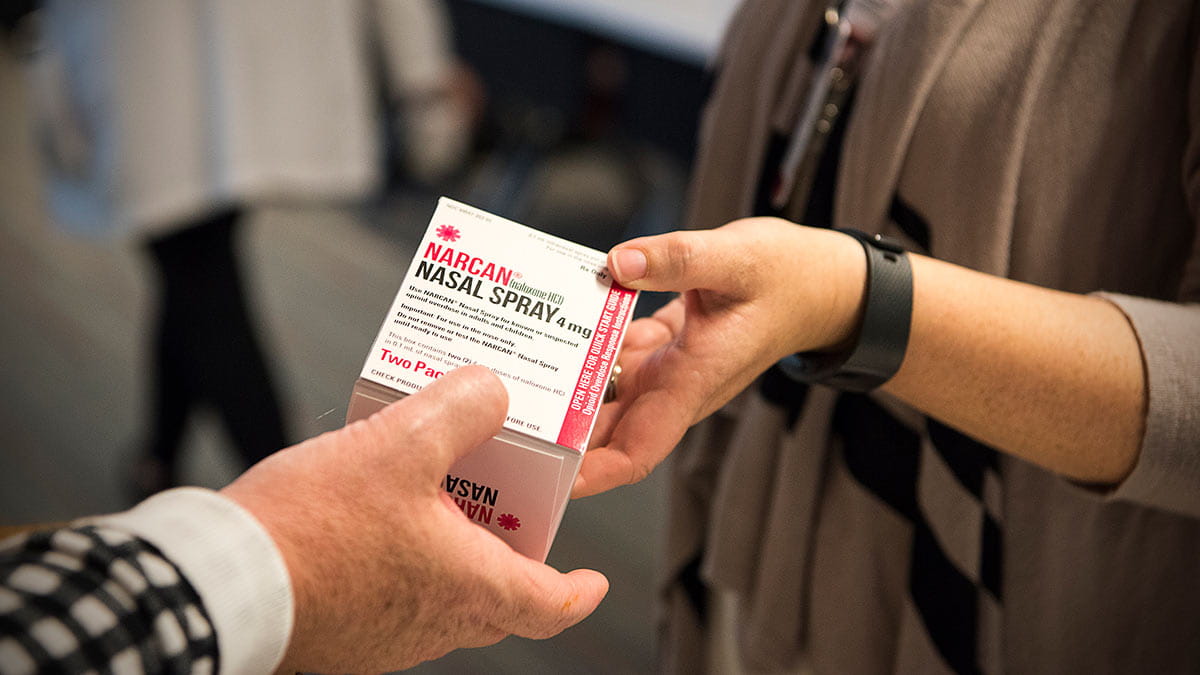Parent guide: How to talk to your kids about drugs and alcohol

You don’t want your kids to get their main information about drugs and alcohol from friends, pop culture references or online sources.
Having the alcohol/drug talk – actually a series of ongoing talks – is just as important as having the sex talk. But it’s hard to know when and how to begin, isn’t it?
Robert Bailor, our counselor who specializes in drug and alcohol dependency, has a plan to help ease any anxiety that you might feel as you prepare to discuss this tough topic with your children.
Bailor, who works with individuals and families at Talbot Hall, the addiction medicine facility at The Ohio State University Wexner Medical Center, guides you on how to explain the harm of alcohol/drug abuse and how to help children embrace positive personal values that foster a healthy lifestyle.
Start the conversation at a young age
Using your judgment to pick the appropriate age to bring up the topic, explain what helpful and harmful drugs are. Some areas to consider covering (adjust the words you use based on the child’s age):
- Getting medicine: Medications are prescribed by a doctor or are available over-the-counter to treat a health problem, such as migraine headaches or colds.
- Proper use: It is very important to follow directions for taking medications. Even over-the-counter medicine, such as a cough syrup, can be harmful if used improperly.
- Define abuse: A person abuses any chemical substance when he or she does not follow the professional instructions or uses possibly dangerous substances such as alcohol to excess. The drugs that people abuse could come from a medical professional who does not know about the person’s misuse or from a non-professional, usually a drug dealer. Abuse causes a person to become impaired and possibly sick physically and mentally.
- Dependency: People are chemically dependent (addicted) when a chemical substance takes control of their brain, causing them to say and do things they wouldn’t do if they were sober. Illegal drugs are meant to make people feel good inside, but they are so powerful and harmful that people find they can’t live without the drug, and they can't seem to stop doing hurtful things to get more.
- Consequences: Using these types of drugs not only could result in prison time, but also could hurt your body, mental health, relationships and spiritual beliefs.
Heredity
As chemical addiction has a proven correlation to genetics, you should inform your child if alcoholism and/or drug abuse has been part of the family history. Without scaring the child, state matter-of-factly that some people have a built-in tendency to use alcohol and drugs improperly.
A parent's own use
If you have used alcohol or drugs, it may be beneficial to disclose this to the child at an appropriate time. However, the emphasis should be on the ill effects of this use, not the details of what using was like.
Talking in detail about your use may encourage children to try what you did or to use your alcohol/drug history as a justification for their own use ("Well, you did it!").
Establish healthy attitudes and habits
Encourage exercising regularly, eating well and developing friendships with kids who support positive decision-making to help your child establish a healthy identity. As your child ages, encourage him or her to get involved with healthy activities, such as team sports, scouting or youth service groups.
Nurture a spiritual life
Regardless of your religious beliefs, help your child understand that there is more to life than pleasure and survival. Tell your son or daughter: You are meant to be way more than what you would become as an alcoholic or a drug addict.
Position yourself as an authority figure
Parents sometimes feel like their kids are slipping away as they become more independent, so they try to “befriend” their kids in an attempt to hold on longer.
But children need structure, order and discipline to thrive. Successful parenting should not be measured in terms of child approval/disapproval.
Set rules and consequences
The rules will be unique to your family. Be sure to explain why you’re setting the rule.
Rule example: Bedroom doors may not be locked. Explanation: “My job as your mom/dad is to protect you, which includes making sure you’re safe in your bedroom. I cannot fulfill my responsibility if I am not able to come in and check on you.”
For a child who pushes back, make clear that his or her bedroom is not merely the child's domain. It is a gift from you, and you can therefore regulate its use to protect the best interests of the entire family. Consequences for breaking rules should be explicit and reasonable. Such consequences should be developed as training tools, not punishments.
Having alcohol/drug talks does not guarantee that your child will not abuse alcohol or drugs, Bailor says. There are many other factors that might influence the child to disregard your concerns. “This does not mean discussing alcohol and drugs is in vain,” he says. “It just means that the child may follow his or her own path, which might contradict even the wisest of insights.”
But take Bailor’s encouragement: Try to show your kids how strongly you feel about avoiding the danger of substance abuse.




